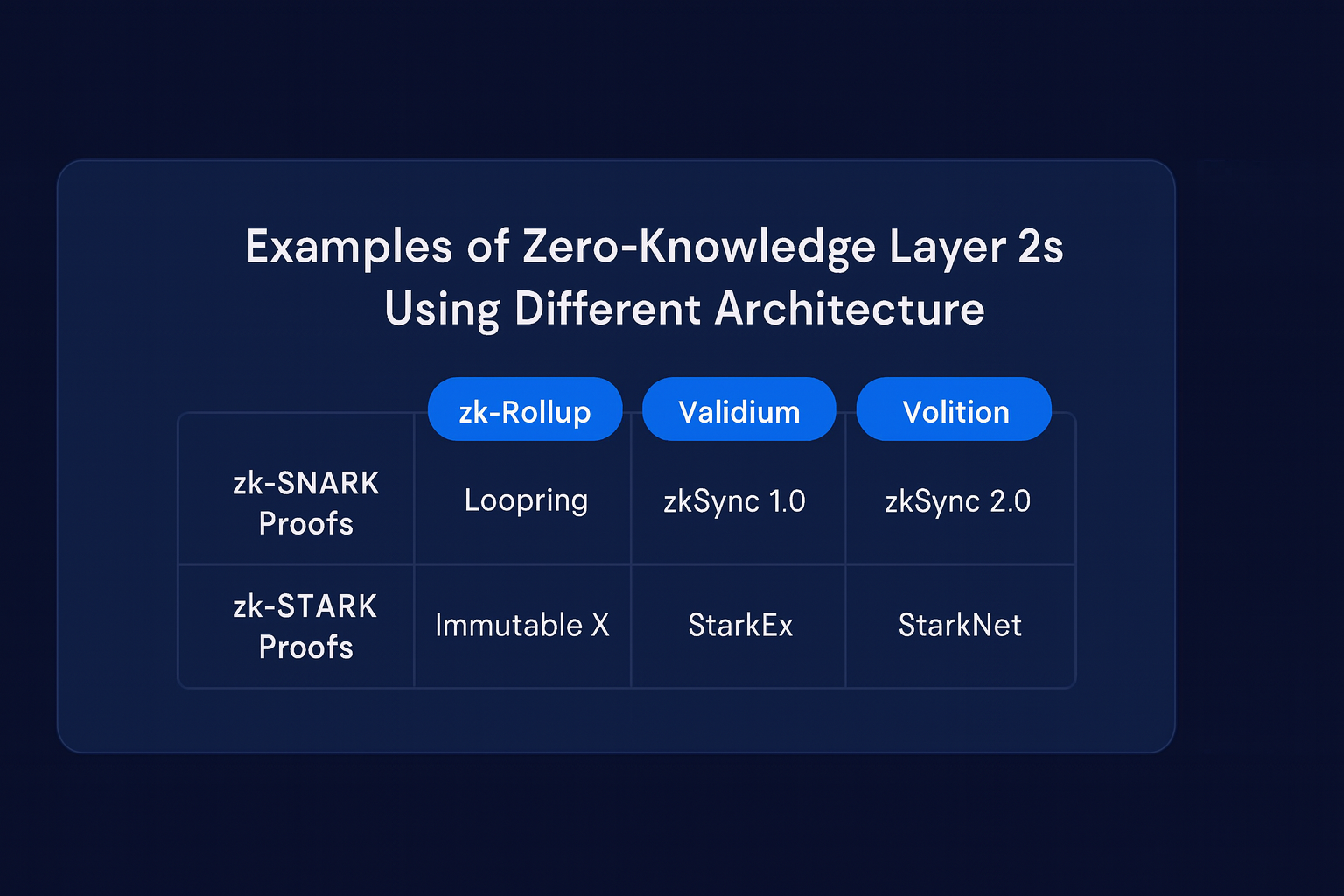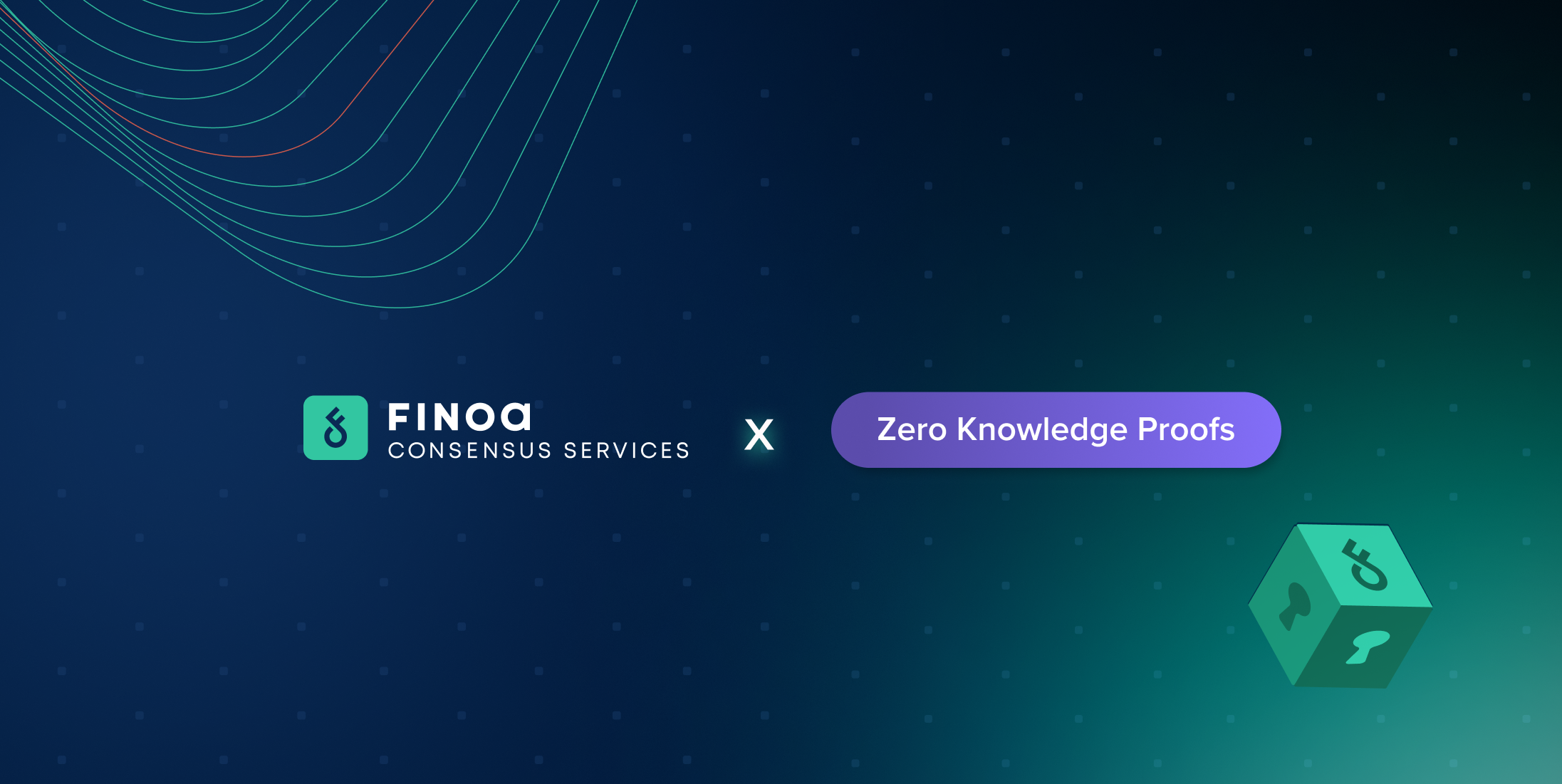Zero-knowledge proving in institutional blockchain applications
As blockchain activity surges, institutions face a critical challenge: How to leverage transparent networks without exposing sensitive data. Zero-knowledge proving (ZKP) offers a powerful answer by enabling one party to validate a fact without revealing any underlying details. For asset managers, custodians, and treasury teams, this means executing smart contracts, participating in Layer 2 solutions, and exchanging off-chain data with confidence, without compromising proprietary information or client privacy.
Top zero-knowledge proof trends driving Layer 2 scalability
Over the past two years, zero-knowledge proofs have transitioned from academic curiosity to foundational technology for Layer 2 rollups and privacy applications. Projects like zkSync and Loopring employ zk-SNARKs to bundle thousands of transactions into a single succinct proof, reducing on-chain gas costs and accelerating finality. Simultaneously, StarkNet leverages STARK proofs, transparent, scalable arguments of knowledge to power a high-throughput execution environment written in Cairo. These developments reflect a broader market shift toward architectures that prioritize both confidentiality and scalability, making ZKP adoption a strategic imperative for institutional players evaluating blockchain infrastructure.
What is zero-knowledge proving and how it works
At its core, a zero-knowledge proof allows a prover to convince a verifier that a statement is true without revealing any additional information. A classic illustration is the “cave” example: Alice proves she knows the secret passcode to a locked door by repeatedly navigating a hidden path on demand, without ever disclosing the code itself.
.png)
Formally, ZKPs satisfy three properties:
- completeness (an honest prover convinces an honest verifier)
- soundness (no dishonest prover can cheat), and
- zero-knowledge (the verifier learns nothing beyond the statement’s validity).
Proofs can be interactive, requiring back-and-forth communication, or non-interactive, where a single proof can be verified offline by any party.
Comparing ZKP types: zk-SNARKs, zk-STARKs, PLONK and Bulletproofs
Different ZKP constructions trade off proof size, prover time, and verification efficiency.
- zk-SNARKs (succinct non-interactive arguments of knowledge) produce small proofs that are quick to verify on-chain, relying on elliptic-curve cryptography.
- zk-STARKs (scalable transparent arguments of knowledge) remove the need for a trusted setup and use hash-based primitives for transparency and post-quantum resistance.
- PLONK introduces a universal trusted setup that supports multiple circuits, streamlining deployment across diverse applications.
- Bulletproofs enable short range proofs without any trusted setup, making them ideal for confidentiality-focused transactions in cryptocurrencies Chainlink.

Institutional ZKP use cases: privacy, rollups, oracles and identity
Zero-knowledge proving unlocks a spectrum of applications for institutions:
- Private transactions: Protocols like Zcash use ZKPs to conceal sender, receiver, and amount, ensuring transactional privacy on public ledgers.
- Verifiable computations: Decentralized oracle networks can prove off-chain data validity without disclosing raw data, enabling secure integration of premium feeds into smart contracts.
- Layer 2 scalability: zk-Rollups and Validiums aggregate thousands of transactions off-chain, posting only proofs on Ethereum to boost throughput and cut fees.
- Decentralized identity: ZKPs underpin credential systems that verify attributes, such as account balance thresholds or citizenship, without exposing personal details.
- Supply chain traceability: Enterprises can attest to raw-material origins or sustainability credentials while maintaining confidentiality of proprietary data flows.
FCS’s ZKP-optimized infrastructure and operational assurances
Finoa Consensus Services holds an AAA rating from StakingRewards, reflecting top-tier performance and reliability. We provide institutions with dedicated validator infrastructure on Germany based bare-metal servers. Designed for isolation, high throughput and resilience with redundant hardware, enabling participation in zkSync.
We monitor operations around the clock, using proactive alerting and real-time diagnostics to catch anomalies before they affect proof generation. Rigorous process controls and expert node management keep validator attestations running without interruption. Every attestation aligns with the latest ZKP protocol upgrades. Our institutional-grade infrastructure power an end-to-end staking solution for privacy-focused Layer 2 ecosystems that meets institutions needs.
Real-world use case: FCS on Fermah’s live ZK proving testnet
Finoa Consensus Services is actively stress-testing its ZKP infrastructure in Fermah’s Testnet. By running a next-gen RTX 5090 GPU on our German bare-metal servers, tuned for peak proof throughput, we’re competing on the leaderboard and proving our hardware’s resilience under live conditions. For the full technical walkthrough, read our blog on the Fermah testnet. https://finoa-fcs.io/blog/fermah-testnet
Moving forward: embrace ZKP staking with FCS
Zero-knowledge proving drives blockchain innovation by combining privacy with scalability. Institutions can boost efficiency and safeguard sensitive data through ZKP rollups and verifiable computations. Finoa Consensus Services delivers the infrastructure, monitoring and expertise you need to stake confidently on proof-centric networks.
This article is for educational purposes only and does not constitute financial advice or the offering of any financial product.

